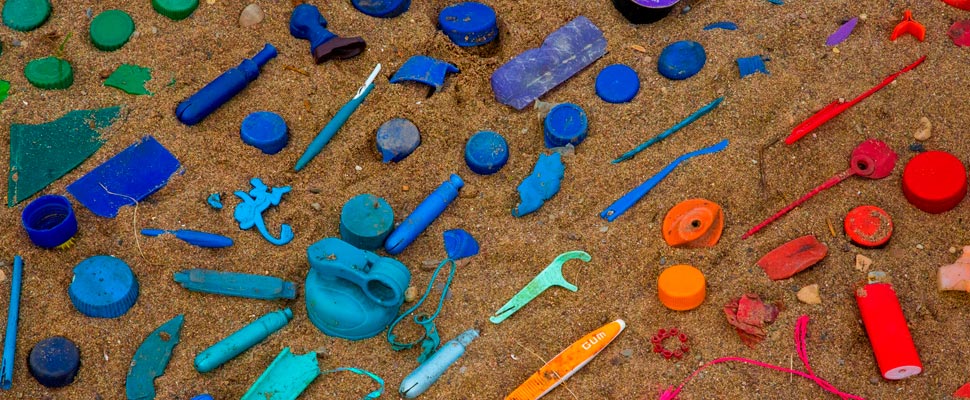What Are The Pros & Cons Of Using Plastic Products?
Plastic may be one of the most revolutionary and innovative products of the modern world that have transformed the lifestyle of all of mankind.

Ali Asghar Abbas
Listen to this article
One such example is DuPont’s trademark Vespel plastic machining used to make different kinds of plastic products that can achieve many different advantages that are unparalleled by any other plastic product. The word plastic has origins that associate that the property of the product is “pliable and easily shaped”. Today’s modern times have defined plastic to include many different polymers.
The Origins Of Plastic
Turn the clock back towards 1869 in New York City when ivory was being used to create billiard balls that were used to play pocket billiards. In those days, ivory was the only commodity that was available to be used to create billiard balls. So a $10,000 prize was proposed to anyone who could present a viable alternative to using ivory to manufacture billiard balls. John Wesley Hyatt in 1969 used camphor to treat cellulose obtained from cotton fiber to invent plastic.
The Advantages Of Plastic Products
The plastic that John Wesley Hyatt discovered could be designed to form an assortment of shapes that would replicate the properties of ivory and could easily be used to create billiard balls, the keys of a piano, or even dominoes. Mankind knew about the scarcity of ivory but here comes a man-made material with an endless supply that could easily be configured in an infinite number of designs. Promotional material glorified plastic as the rescuer of elephants, walruses, tortoises, sperm whales, and other animals with ivory because they would no longer be poached any longer.
1. Durable Or Impact Resistant
Plastic is extremely durable because of its superb shock-absorbing qualities. Some of the most durable products such as bullet-proof vests, car shock absorbers, helmets, outdoor furniture, and automotive fuel tanks are made of plastic. Some kinds of plastics can withstand short-term exposure to temperatures of up to 1,400°F or 760°C. To put that number into perspective the melting point of aluminum is 1,221°F or 660.3°C which is almost 200°F or 100°C less than the temperature that plastics can withstand.
2. Light Weight
One of the biggest advantages of plastics in comparison to metals or any other product is that it is extremely light-weight. A children’s playground in the open air can be made of wood, metal, or plastic. Plastic is exceptionally lightweight yet still reliably durable in comparison to all of the other products which can be used other than plastic. This has an added advantage, especially when transporting products made of plastic because of their lightweight the costs of transporting plastic products are not very high.
3. Non-Conductor Of Electricity
Did you ever touch a plastic toy or appliance only to get electrocuted? Of course not. One of the principal properties of plastic is that it does not conduct electricity in any shape or form. This is why plastic can be used as an insulator around metal wires to ensure that no one faces the hazards of electric shock. In the case of an outdoor playground, if a naked electrical wire happens to fall on a playground made of plastic, no one will get hurt.
4. Lower Cost Of Production
It is very difficult to find an easily available natural product that has all of the properties of plastic. Natural resources incur higher costs because it takes time for the product to become available and this includes natural renewable resources. Manufacturing plastic products is much cheaper in comparison to the same products made of metal. There may be limited resources of metals but plastics can be produced in any shape, design, or form.
5. Lower Cost Of Transportation
Some physical properties of finished products, whether they are made of plastic or metal, incurs excessive costs of transportation. For example, transporting metal furniture will be an arduous and complicated task because of the properties of metal and the weight of the entire consignment. The same products made of plastic will be much easier to transport because of less weight. At the same time, you do not have to worry about plastic products getting rusty because of exposure to water.
Read also: Bitcoin: How Do Cryptocurrencies Affect the Environment?
The Disadvantages of Plastic Products
Since plastic is a man-made material, plastic presents many unique problems which are not there in any of the other materials. Some of the disadvantages of plastic also incorporate the features and qualities which were the advantages of plastics. Other disadvantages go back to the manufacturing process of plastic, which cannot be changed. The problem with making the appropriate changes is that it requires adjustments in our modern lifestyle which are easier said than done.
1. Dependence On Fossil Fuels
Whenever consumers hear the words “reduce dependence on fossil fuels” they visualize a vehicle driving long distances using unnecessarily exorbitant amounts of petroleum. Consumers fail to realize that every time you purchase a plastic bottle there is a little amount of crude oil used to produce that bottle. There is also a significantly larger amount of fuel used to transport the bottle to its destination. Always look at the label of any kind of plastic bottle to find where the bottle was originally produced and compare that to the location where you purchased the bottle.
Consumers will discover that the bottle was produced in a distant manufacturing location and transported thereafter to their current location. Valuable resources are spent to transport plastic bottles to the place where they are sold. The transportation process for plastic bottles involves polluting the environment just so that they can reach their point of sale.
2. Filling Landfills
The average consumer believes that all plastics can be recycled in one way or another. This is not entirely true because not all plastics can be recycled. Some of it will inevitably end up in a landfill site somewhere across the globe. Environmental dumping is when affluent nations ship their plastic waste to poorer nations.
Plastic bags can take 20 years to decompose and it takes 200 years for a plastic drinking straw to decompose. Disposable diapers and toothbrushes both take about 500 years to decompose all because there is no form of bacteria that enjoys decomposing plastic.




